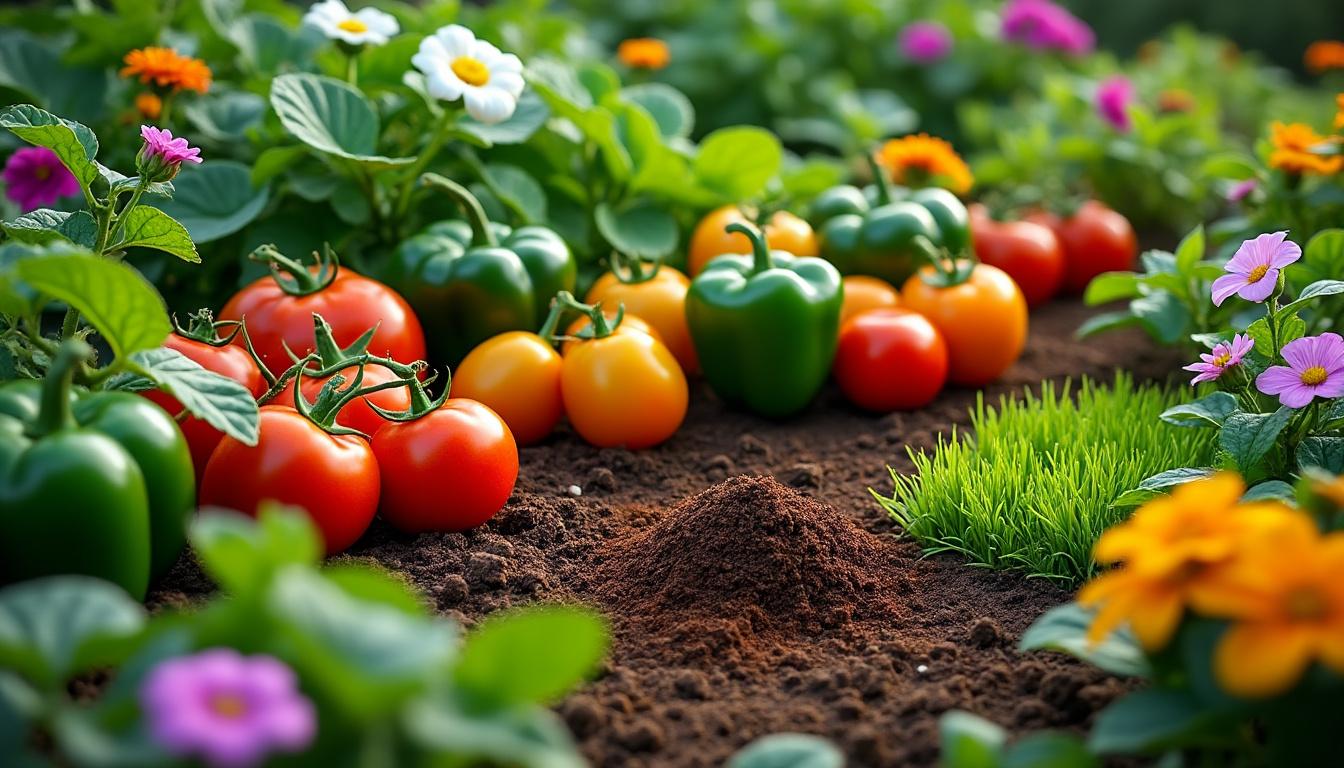Utilizing coffee grounds in gardening has gained popularity as an eco-friendly method to enrich soil and recycle waste. Yet, when misapplied, these grounds can harm plant health and soil dynamics. For entrepreneurs and gardeners employing top-tier brands such as Miracle-Gro, Scotts, and Espoma, understanding where to avoid applying coffee grounds is crucial to optimizing plant vitality and preventing unintended damage.
Areas To Avoid Using Coffee Grounds In Your Garden For Optimal Plant Health
Despite their nutrient content, coffee grounds require careful application. Indiscriminate use can hinder the growth of sensitive plants and disrupt soil conditions. Identifying zones where coffee grounds should be withheld can safeguard garden productivity.
Annual Vegetable Gardens: Risks Of Applying Coffee Grounds Directly
While coffee grounds are rich in nitrogen, this nutrient is not immediately available. Microbial activity must first decompose the grounds, during which microbes compete with plants for existing soil nitrogen, potentially leading to nutrient deficiencies in vegetables like leafy greens.
- Competition for nitrogen: Microbes decompose grounds, lowering nitrogen available to plants.
- Soil aeration issues: Fine coffee grounds tend to compact and repel water, stifling root health.
- Allelopathic effects: Compounds such as caffeine can inhibit seed germination and root development.
Prominent horticultural organizations such as Gardeners Supply Company and Burpee emphasize avoiding direct ground application in vegetable plots for these reasons.
| Impact | Effect On Vegetables | Recommended Action |
|---|---|---|
| Nitrogen immobilization | Stunted leafy greens growth | Add coffee grounds to compost before application |
| Soil compaction | Decreased root oxygenation | Mix with organic matter like Happy Frog or Black Gold compost |
| Caffeine allelochemicals | Reduced seed germination rates | Use alternatives such as ProMix or Jiffy seed-starting mix |
Woody Plants And Acidic Soil Misconceptions: Hydrangeas Case Study
Commonly believed to acidify soil and change hydrangea bloom colors, used coffee grounds are typically close to neutral pH (6.5-6.8) and do not alter soil acidity significantly. Misapplication can lead to moisture retention, fungal infections, and leaf damage.
- Myth debunked: Coffee grounds rarely affect soil pH post-brewing.
- Risk of waterlogging: Grounds form a dense barrier that retains excess moisture.
- Root stress and disease: Saturated soil conditions invite fungal pathogens.
Experts including those working with FoxFarm and Espoma stress using specific products like Grow More’s hydrangea blueing formula rather than coffee grounds for pH adjustment.
| Misconception | Actual Effect | Recommended Alternative |
|---|---|---|
| Coffee grounds acidify soil | pH mostly neutral after brewing | Use commercial acidifying agents from Gardeners Supply Company |
| Improves flower color | Potential leaf curling and bloom browning | Apply formula specifically for bloom coloration |
| Enhances moisture retention | Excess moisture and fungal growth | Mulch with leaf mold or high-quality compost instead |
Plants Preferring Well-Draining Soil: Avoid Coffee Grounds On Mediterranean Herbs And Succulents
Mediterranean herbs like lavender, rosemary, thyme, and sage require airy, well-draining soil conditions incompatible with the dense layer coffee grounds can create. Succulents also suffer from excessive moisture caused by coffee ground mulching.
- Soil compaction: Coffee grounds limit soil porosity, impeding root oxygen.
- Excess moisture: Grounds trap water, increasing root rot risk.
- Growth inhibition: Yellowing foliage and plant collapse observed in sensitive species.
The insights from Scott’s and Miracle-Gro cultivation guidelines further emphasize avoiding coffee grounds in these soil-sensitive zones.
| Plant Type | Effect Of Coffee Grounds | Suggested Soil Amendment |
|---|---|---|
| Mediterranean herbs | Yellowing leaves and weakened growth | Use sandy, well-draining mixes from Burpee or ProMix |
| Succulents | Root rot and collapse | Apply gravel mulch or specialized succulent soil from Jiffy |
Effective Strategies For Using Coffee Grounds Safely In The Garden
The optimal approach to utilizing coffee grounds involves indirect application through composting, allowing nutrient transformation and safe integration of organic matter. This method is endorsed by authorities such as Happy Frog and Black Gold, which produce compost-friendly products.
- Add coffee grounds to compost piles: Enhances nutrient cycling and microbial balance.
- Blend finished compost into garden beds: Promotes balanced nutrient availability.
- Avoid single-source nutrient amendments: Coffee alone lacks complete nutrition.
| Method | Benefit | Recommended Product Partners |
|---|---|---|
| Composting coffee grounds | Gradual nutrient release and improved soil structure | Black Gold, Happy Frog compost blends |
| Using finished compost as mulch | Supports moisture retention without waterlogging | Scotts organic mulches, Miracle-Gro soil enhancers |
| Balanced fertilization | Maintains optimal plant growth and health | Espoma, FoxFarm complete fertilizers |
Frequently Asked Questions About Coffee Grounds In Gardening
- Can coffee grounds acidify garden soil?
Used coffee grounds after brewing generally have a neutral pH and do not significantly alter soil acidity. - Is it safe to use coffee grounds around vegetables?
Direct application is discouraged; composting coffee grounds before use ensures nutrient availability and avoids root stress. - Why should coffee grounds be avoided near succulents and Mediterranean herbs?
These plants require well-draining soil, and coffee grounds can compact soil and retain excess moisture, promoting root rot. - What is the best way to recycle coffee grounds for the garden?
Incorporating grounds into compost heaps maximizes nutrient recycling and improves soil health. - Are there alternatives to coffee grounds for mulch?
Yes, organic mulches like leaf mold, compost, or bark mulch are preferable for moisture balance and soil aeration.
For additional sustainable gardening guidance and practical advice on enriching your green spaces, resources such as dailybakersfieldnews.com/kitchen-tips-monsoon offer in-depth insight on organic methods and soil health optimization.

